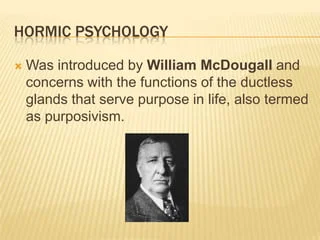In the realm of philosophical thought, Percosivism emerges as a captivating ideology that has left a distinct imprint on modern society and culture. Rooted in introspection and embracing the enigmatic nature of existence, Percosivism offers a unique lens through which to view the complexities of life. As we venture into this philosophical journey, let us delve into the core tenets and impact of Percosivism on both thought and society.
Key Principles of Percosivism
At the heart of Percosivism lies a set of principles that challenge traditional paradigms and beckon individuals to reevaluate their relationship with the world around them. Central to Percosivism is the recognition of ambiguity and uncertainty as integral facets of existence. This principle calls upon individuals to embrace the discomfort of the unknown and find solace amid ambiguity. Moreover, Percosivism emphasizes the exploration of subjective truths—acknowledging that personal experiences shape one’s perception of reality.
Percosivism’s advocacy for introspection leads individuals on an internal quest for understanding. Self-awareness becomes a guiding light, allowing individuals to navigate the labyrinth of emotions and thoughts. The philosophy invites us to explore the depths of our psyche, uncovering hidden motivations and desires that steer our actions.
Impact on Modern Thought and Society
Percosivism’s influence transcends the realm of philosophy, seeping into various facets of modern thought and society. From the arts to social activism, its impact is profound and resonates deeply with those who seek meaning in an ever-evolving world.
In the realm of art and literature, Percosivism’s themes often intertwine with narratives that explore the human condition. Authors and creators delve into the intricacies of existence, crafting stories that mirror the uncertainties and complexities of life. By doing so, they invite readers and audiences to contemplate the deeper layers of human experience.
Percosivism’s fingerprints are also evident in social movements and activism. The philosophy’s acknowledgment of the individual’s quest for authenticity aligns with the values upheld by various causes. Activists find resonance in the notion that societal norms sometimes obscure genuine expressions of identity and purpose. As a result, they draw inspiration from Percosivism to challenge the status quo and pave the way for positive change.
Percosivism vs. Other Philosophical Movements
In the vast landscape of philosophical ideologies, Percosivism stands as a distinct and captivating perspective that diverges from other prevalent movements. A comparative analysis between Percosivism and philosophical counterparts such as Existentialism, Nihilism, and Absurdism reveals both converging themes and fundamental divergences.
While Existentialism emphasizes the individual’s pursuit of meaning in an inherently absurd world, Percosivism amplifies the importance of embracing ambiguity itself as a form of meaning. Where Existentialism often grapples with the anguish of choice, Percosivism encourages a more serene coexistence with uncertainty. Percosivism’s recognition of subjective truths that hold personal significance counters nihilism’s negation of inherent meaning.
In contrast to the Absurdist notion of life’s inherent irrationality, Percosivism’s introspective focus leads individuals to a deeper understanding of their emotional landscapes. It bridges the gap between the irrationality of existence and the rational exploration of one’s psyche.
Relevance in the Digital Age
As society hurtles into the digital age, the principles of Percosivism acquire new dimensions of relevance. The ever-expanding virtual realm brings forth unique challenges to human connection and self-discovery, echoing the themes embedded within the philosophy.
The digital landscape often offers an illusion of connectedness, masking underlying feelings of isolation and disconnection. Percosivism’s emphasis on self-awareness becomes a beacon, guiding individuals through the digital noise to the core of their emotions. It invites individuals to question whether their online presence truly reflects their authentic selves or if it’s a construct influenced by external perceptions.
Moreover, the speed and volatility of the digital era mirror the uncertainty that Percosivism addresses. The philosophy encourages individuals to approach the rapid changes of the digital age with a sense of calm acceptance rather than resistance. By doing so, one can find solace amidst the ever-shifting currents of information and communication.
Percosivism in Literature and Media
Percosivism’s rich philosophical tapestry has woven its threads into the fabric of literature, films, TV shows, and music. In literature, authors often employ philosophy’s principles to craft characters who navigate intricate emotional landscapes. Characters grapple with the unknown, seeking personal truths as they journey through narratives that reflect the complexity of life.
The silver screen, too, has embraced Percosivism’s allure. Films delve into characters’ inner turmoil and wrestle with existential questions, mirroring the philosophical exploration central to Percosivism. Directors and screenwriters employ visual metaphors and narrative structures that parallel the ambiguity and depth of human emotions.
Television shows, whether in dramatic arcs or comedic interludes, offer a platform to explore the nuances of authenticity and identity. Characters’ quests for meaning, coupled with their struggles against societal norms, resonate with the philosophical underpinnings of Percosivism.
Even the rhythm of music finds resonance with the cadence of Percosivism. Lyrics that contemplate life’s uncertainties and emotions evoke the philosophy’s themes of introspection and acceptance. Melodies often mirror the ebb and flow of emotional tides, inviting listeners to connect with their inner selves.
Critiques and Debates
As with any philosophical perspective, Percosivism has not been immune to critique and academic discourse. While the philosophy offers a compelling framework for navigating the uncertainties of life, it also faces skepticism and challenges from various quarters.
Critics often question whether embracing ambiguity can lead to passivity or apathy in the face of challenges. They contend that seeking meaning in the unknown might deter individuals from actively engaging with life’s complexities. Moreover, some argue that Percosivism’s emphasis on personal truths could potentially undermine shared moral values, leading to relativism.
In response, proponents of Percosivism assert that the philosophy doesn’t advocate for indifference but rather invites a mindful engagement with ambiguity. They argue that embracing uncertainty can be a source of empowerment, encouraging individuals to approach life’s mysteries with curiosity and acceptance. Additionally, they stress that Percosivism doesn’t negate shared values but rather encourages a deeper exploration of one’s ethical convictions.
Practical Applications in Everyday Life
Beyond the realm of theory, Percosivism extends its influence into practical aspects of daily existence. The philosophy’s principles can serve as valuable guides for individuals seeking personal growth and resilience.
In moments of decision-making, embracing ambiguity allows one to make choices with greater openness. Instead of fixating on a single predetermined path, individuals can approach options with curiosity, unafraid of venturing into uncharted territories. This approach fosters adaptability and the ability to navigate life’s twists and turns.
Furthermore, the journey of introspection encouraged by Percosivism can lead to heightened self-awareness. By peeling back layers of emotional complexities, individuals gain insight into their motivations and reactions. This self-awareness forms a foundation for developing healthier coping mechanisms and fostering emotional well-being.
Percosivism and Mental Health
In the context of mental health, Percosivism’s principles offer a unique perspective that can complement therapeutic approaches. The philosophy’s recognition of the multifaceted nature of emotions aligns with the therapeutic process of exploring and understanding one’s feelings.

For individuals grappling with anxiety or uncertainty, Percosivism provides a framework to reframe these emotions as inherent aspects of the human experience. Rather than seeking to eliminate these feelings, individuals can learn to coexist with them, finding comfort in the natural ebb and flow of emotions.
In therapy, the exploration of personal truths advocated by Percosivism can empower individuals to uncover underlying factors contributing to their mental health challenges. By addressing the root causes, individuals can embark on a journey of healing that aligns with their authentic selves.
Conclusion: The Ongoing Relevance of Percosivism
In our exploration of Percosivism, we’ve journeyed through its core principles, impact on modern thought and society, comparison to other philosophical movements, relevance in the digital age, presence in literature and media, critiques and debates, practical applications in everyday life, and its connection to mental health.
Percosivism stands as a philosophy that beckons individuals to embrace the enigmatic nature of existence. Its call to coexist with ambiguity, seek personal truths, and explore the depths of introspection resonates with those navigating the complexities of the human experience. From literature to activism, from the digital landscape to therapy rooms, the philosophy’s influence is far-reaching and deeply woven into the fabric of our lives.
As the world continues to evolve, Percosivism’s relevance remains steadfast. In a society inundated with information and rapid change, its principles offer a compass for those seeking a deeper understanding of themselves and the world around them. By embracing uncertainty, fostering introspection, and finding solace in ambiguity, individuals can embark on a journey of self-discovery that harmonizes with the intricate melodies of life.
In closing, the philosophy of Percosivism reminds us that in the pursuit of meaning, we need not unravel all the mysteries. Instead, we can find fulfillment in the journey itself—a journey that invites us to explore the unknown, uncover our truths, and embrace the beauty of ambiguity.
FAQs about Percosivism:
Q: What is Percosivism?
A: Percosivism is a philosophical ideology that emphasizes embracing ambiguity, exploring personal truths, and fostering introspection.
Q: How does Percosivism differ from Existentialism?
A: While both focus on meaning, Percosivism leans towards accepting uncertainty, whereas Existentialism delves into finding meaning within the absurdity of existence.
Q: Can you explain the impact of Percosivism on modern thought?
A: Percosivism has influenced art, literature, social activism, and even the digital age by encouraging the exploration of ambiguity and personal truths.
Q: What role does Percosivism play in the digital age?
A: In the digital realm, Percosivism encourages introspection and authentic self-expression in the face of digital isolation.
Q: How does Percosivism manifest in literature and media?
A: In literature and media, Percosivism’s themes often mirror characters’ emotional complexities and their journeys toward self-discovery.
Q: What criticisms does Percosivism face?
A: Some critics argue that embracing ambiguity might lead to passivity and that the emphasis on personal truths could undermine shared moral values.
Q: How can Percosivism be applied practically in everyday life?
A: In daily life, Percosivism helps with decision-making by promoting openness and providing tools for self-awareness and emotional resilience.
Q: Can Percosivism contribute to mental health discussions?
A: Yes, by acknowledging the coexistence of emotions and exploring personal truths, Percosivism aligns well with therapeutic approaches.
Q: What makes Percosivism relevant in an ever-changing world?
A: Percosivism’s principles help individuals navigate rapid changes by fostering adaptability and a calm acceptance of uncertainty.
Q: How does Percosivism approach the concept of authenticity?
A: Percosivism encourages individuals to discover their authentic selves through introspection and the exploration of personal truths.
Q: Does Percosivism advocate avoiding commitment and decisions?
A: No, it suggests embracing ambiguity doesn’t equate to avoiding commitment, but rather to approaching choices with an open mind.
Q: Can Percosivism address feelings of uncertainty and anxiety?
A: Yes, by accepting and exploring uncertainty, Percosivism offers a way to reframe these emotions and reduce their negative impact.
Q: Is there room for shared values within Percosivism?
A: Absolutely, Percosivism doesn’t negate shared values; it encourages deeper exploration and understanding of one’s ethical beliefs.
Q: How does Percosivism’s emphasis on introspection impact personal growth?
A: Introspection, a key aspect of Percosivism, fosters self-awareness, leading to healthier coping mechanisms and emotional well-being.
Q: Can Percosivism help individuals find meaning amid challenges?
A: Yes, by embracing ambiguity, individuals can find meaning in the journey itself, even in the face of challenging circumstances.
Q: Does Percosivism promote a passive attitude toward life?
A: No, it encourages active engagement with life’s complexities by advocating for a mindful and open approach to ambiguity.
Q: Can Percosivism address the sense of disconnection in the digital age?
A: Indeed, by promoting introspection and authentic self-expression, Percosivism can counter feelings of disconnection in the digital realm.
Q: How does Percosivism relate to personal authenticity?
A: Percosivism encourages individuals to seek personal truths and authentic self-expression, aligning with the concept of being true to oneself.
Q: Is Percosivism suitable for all individuals?
A: While it resonates with many, individuals seeking a philosophy that embraces ambiguity and introspection are more likely to connect with Percosivism.
Q: How can one start integrating Percosivist principles into one’s life?
A: Begin by accepting ambiguity, exploring personal truths, and fostering self-awareness through practices such as journaling and self-reflection.




